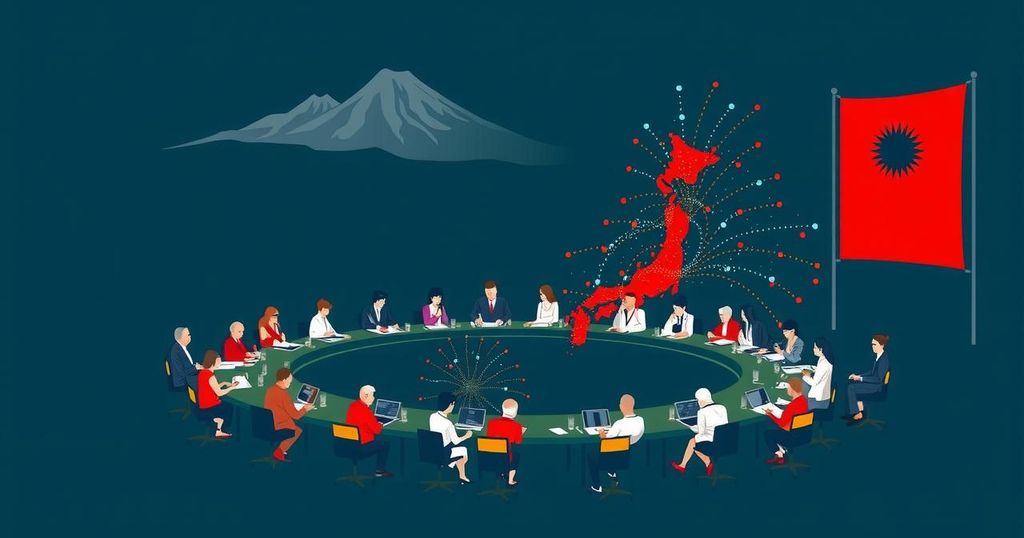The Legacy of the Kyoto Protocol: Triumphs and Challenges in Climate Diplomacy
The Kyoto Protocol, established in 1997, was the first international attempt to enforce reductions in greenhouse gas emissions. Although heralded as a significant step, negotiations have faced obstacles, particularly from fossil-fuel lobbyists like Don Pearlman, whose influence delayed meaningful progress. The Royal Shakespeare Company’s “Kyoto” dramatizes these challenges, reflecting on the ongoing struggle for effective climate action.
The Kyoto Protocol marked a significant milestone in environmental diplomacy, as it was the first international agreement to mandate reductions in greenhouse gas emissions. On December 11, 1997, UK Environment Secretary John Prescott famously announced a historic agreement among developed nations to combat climate change, thereby igniting hope amidst palpable fatigue among attendees. Nevertheless, the journey toward effective climate action has often been undermined by the fossil-fuel lobby, which actively sought to obstruct negotiations and delay meaningful progress.
At the heart of this struggle is the narrative surrounding Don Pearlman, a prominent attorney hired by the fossil-fuel sector. His adeptness at navigating legal frameworks allowed him to manipulate climate discussions, ensuring that any agreements reached fell short of comprehensive solutions. Pearlman’s story is now dramatized in the Royal Shakespeare Company’s production titled “Kyoto,” which will debut in London next month, shedding light on the behind-the-scenes battles that shape climate policy.
Despite the ongoing challenges posed by vested interests, the Kyoto Protocol established a framework that has been leveraged in subsequent climate summits. The procedural advancements made in these meetings, while often criticized for their insufficiency, are celebrated as steps forward by those committed to environmental advocacy.
The Kyoto Protocol was adopted in Kyoto, Japan, in 1997 and became a pivotal moment in the global effort to address climate change. It mandated that developed countries reduce their greenhouse gas emissions to combat the rising threats posed by climate change, marking the first binding commitments on climate efforts. Despite the initial hope generated by the agreement, subsequent conferences have faced numerous hurdles, particularly from representatives aligned with fossil-fuel interests, highlighting the complexities and tensions inherent in international negotiations.
In conclusion, while the Kyoto Protocol represented a groundbreaking achievement in climate diplomacy, the subsequent years have revealed the persistent obstacles created by entrenched fossil-fuel interests. The legacy of figures like Don Pearlman serves as a reminder of the challenges that remain in achieving meaningful progress. Nevertheless, the enduring commitment of nations to the fight against climate change underscores the importance of continued advocacy and negotiation in the years to come.
Original Source: www.theguardian.com




Post Comment